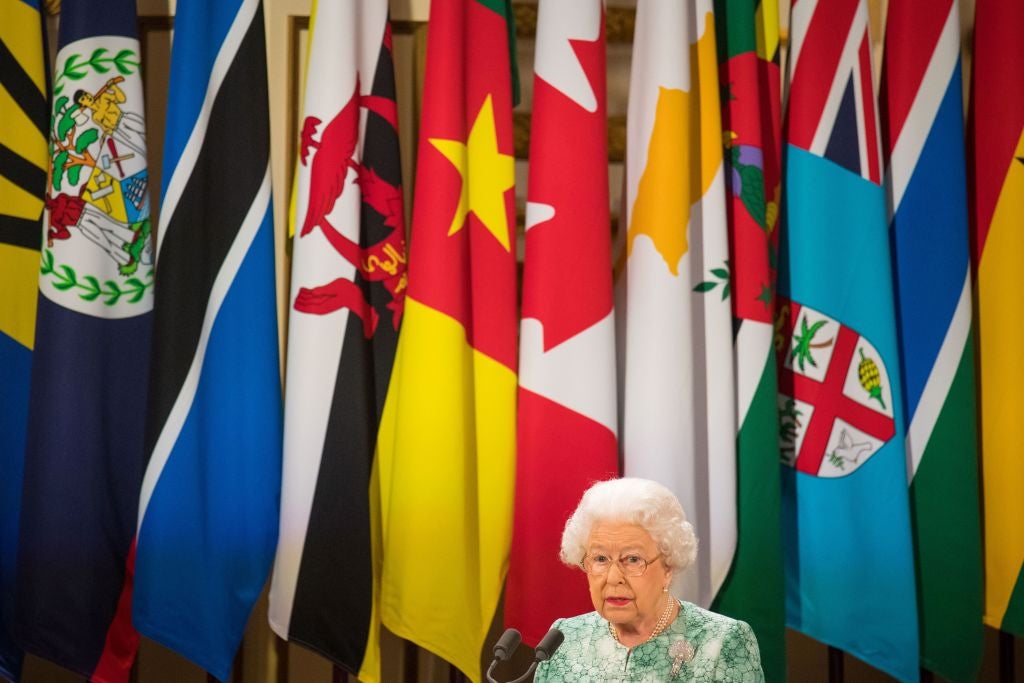
In the years since the UK’s decision to leave the EU and forge so-called ‘Global Britain’, renewed attention has been given to the economic importance of the country’s much older (and home-made) union, the Commonwealth of Nations – comprising 56 member states, the vast majority of which are former territories of the British Empire.
This, however, has not yet translated into increased investment into and from the Commonwealth. A slew of post-Brexit free trade agreements and negotiations, such as that with India, may change that. However, there remains a wider slump in intra-Commonwealth foreign direct investment (FDI).
Intra-Commonwealth investment has been falling for years
One of the main purposes of the Commonwealth is to boost investment between its members. In this regard, it is the UK that has been the most active member in recent decades, according to figures from the Commonwealth Secretariat.
For example, in 2021, the UK announced more than £10bn ($12.1bn) in greenfield investment (denoting brand new investments abroad, not expansions) in other Commonwealth countries, amounting, quite impressively, to more than one-third of all intra-Commonwealth FDI.
However, that investment has not been doled out equally. Since 2005, 52% (£69bn) has gone to just two countries, India and Australia, with a further 22% going to Canada, Singapore and South Africa.
More concerning, however, is the fact that the Commonwealth is clearly losing steam as a vehicle for investment. Intra-Commonwealth greenfield FDI amounted to $438bn in the eight years to 2013 but just $282bn in the eight years since, a decrease of 30%.
This downward trend is, in part, a reflection of the global slowdown in investment into Commonwealth countries. Of the 26 Commonwealth countries for which consistent data is available, total inbound greenfield investment has fallen from $1.6trn in the eight years to 2013 to $1.5trn in the subsequent eight years, amounting to a fall of 7%, according to data from the UN Conference on Trade and Investment.
An advisor at the Commonwealth office tells Investment Monitor that global downward trend is a result of heightened global uncertainty (Brexit, the US-China trade war, the global trade slowdown and rising trade protectionism), lower profitability of foreign investment, and the restructuring of global production and global value chains (including shifts towards nearshoring and reshoring).
Nonetheless, the much more rapid decline in intra-Commonwealth FDI means that the bloc is becoming less and less important as a source of investment for its members.
Take the UK, for instance. Between 2006 and 2013, it received $53bn in FDI from other Commonwealth states, accounting for 16% of all inward investment. In the following eight years, total inbound FDI declined by 6%, but inbound FDI from the Commonwealth declined by 28% – with the result that the share of the UK’s FDI originating in the Commonwealth fell to just 12%. Despite this overall decrease, intra-Commonwealth greenfield FDI seems to be becoming more regional in nature, and these flows within some Commonwealth regions actually expanded between 2014 and 2021.
What does this mean? The largest sources of FDI into the Commonwealth historically are slowing down.
Of all nations in the world, four of the 15 countries that have seen the sharpest decrease in outbound FDI between 2006 and 2021 are Commonwealth members – India, Canada, Malaysia and the UK – with the UK at the very bottom. Meanwhile, of the 15 countries seeing the sharpest increase, just one is in the Commonwealth (Singapore). Of the Commonwealth’s largest outward investors, Singapore is the only one to have seen its total investments increase between 2006 and 2021.
China is filling the space left by lack of intra-Commonwealth FDI
China, on the other hand, increased its outbound greenfield, globally, over the past decade. In fact, the country poured $506bn into greenfield FDI projects in the past eight years, $183bn more than the UK and more than double the $222bn it invested in the eight years prior.
A sizeable portion of that money have gone to Commonwealth nations. For example, the past decade has seen capital pour into the Caribbean, while much of it has flown to most parts of the developing and developed world. In fact, since 2013, $6bn of Chinese investment was pumped into the Caribbean region.
Meanwhile, the UK has been preoccupied with issues such as Brexit and other distractions. That the UK has been asleep at the wheel is evidenced by the fact that China has far more bilateral trade deals across the globe, even within the Commonwealth, than Westminster. That post-Brexit Britain has not focused more on the $14.6trn Commonwealth economy would appear to be something of a blunder.
On the bright side…
If trade is anything to go by, the future of the Commonwealth certainly does not seem in peril.
In the 1980s and 1990s, the median Commonwealth member exported less than 15% of its goods to other countries in the bloc. That share has risen in the decades since, typically hitting between 20% and 25% since the financial crisis.
Some members have seen a much more dramatic increase in intra-Commonwealth trade. Botswana, for example, has witnessed the Commonwealth go from making up just 7% of its exports in 2000 to 42% in 2020, while in St Lucia the bloc has gone from receiving just 13% of exports in 1992 to 45% in 2019.
While this is good news, the overall fall in intra-Commonwealth FDI remains a significant concern. Although trade is the mainstay of globalisation, FDI is the crown jewel of economic development since, in many instances, it creates value-add jobs. A post-Brexit UK would be well-served by leading the revival of FDI in and between the Commonwealth members.



